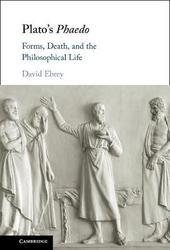
|
Plato's Phaedo: Forms, Death, and the Philosophical Life
Hardback
Main Details
Description
Plato's Phaedo is a literary gem that develops many of his most famous ideas. David Ebrey's careful reinterpretation argues that the many debates about the dialogue cannot be resolved so long as we consider its passages in relative isolation from one another, separated from their intellectual background. His book shows how Plato responds to his literary, religious, scientific, and philosophical context, and argues that we can only understand the dialogue's central ideas and arguments in light of its overall structure. This approach yields new interpretations of the dialogue's key ideas, including the nature and existence of 'Platonic' forms, the existence of the soul after death, the method of hypothesis, and the contemplative ethical ideal. Moreover, this comprehensive approach shows how the characters play an integral role in the Phaedo's development and how its literary structure complements Socrates' views while making its own distinctive contribution to the dialogue's drama and ideas.
Author Biography
David Ebrey is co-editor (with Richard Kraut) of the Cambridge Companion to Plato (2022), editor of Theory and Practice in Aristotle's Natural Science (2015), and the author of articles on a variety of topics in Plato and Aristotle.
Reviews'David Ebrey's valuable scholarship on the Phaedo has consistently helped to deepen readers' understanding of this popular dialogue. In this stimulating new book he takes a holistic approach to the Phaedo, exploring it as a philosopher and classicist, as well as a reader of a 'literary gem' that is part of a rich cultural, religious, scientific, and philosophical tradition. Highly recommended.' Blake Hestir, Texas Christian University 'Judicious, accessible, comprehensive, and richly informative, David Ebrey's new study of the Phaedo will be welcomed by students and scholars alike.' David Sedley, University of Cambridge
|